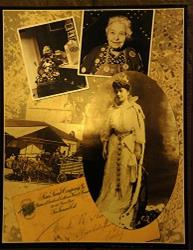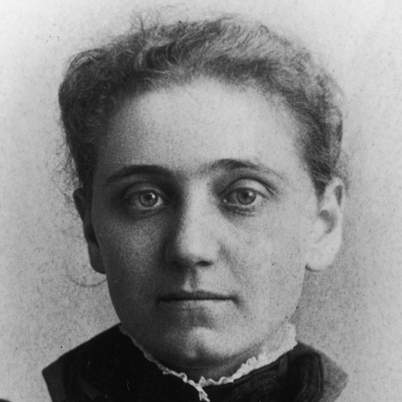The Amazing Stories of Immigrant Women
Wednesday, March 12, 2014 5:30 -8:30 pm.
Celebrate Women’s History Month with AAUW Friends. The history of women immigrants in the U.S. is filled with courage, determination, and perseverance. AAUW San Ramon is co-sponsoring an inspirational presentation by anthropologist and Diablo Valley College instructor Lenore Gallin.
Please join us for dinner at the San Ramon Market Place 5:30 pm, then presentation at the San Ramon Library 7 – 8:30 pm. Please contact Holly Sauer to RSVP and for additional information.
 A Tribute to Ann Coombs
A Tribute to Ann Coombs
by Barbara Bornet Stumph
“My parents registered me as a birthright Quaker,” I explain to a diminutive member of San Francisco Meeting for Worship on Lake Street. It is 1972. I am lonely in the City as I am living far from my parents in Oregon. I had been memorizing the view of the Golden Gate Bridge from our Meeting window for a future painting during our meditative silence.
“What is your name again?” “Well, I am Ann Coombs, but you can call me Grannie Annie. Everyone does.” “Do you have children?” “Heavens no! God knew I would spoil them, so I never had any. I get to spoil other people’s kids. Can your kids have a hard candy?” “Sure, thank you.” That is the beginning. I drive Ann home as we talk about being outsiders in our urban setting. Ann hails from the East where her family rejected her after her divorce in the Thirties. “My marriage was a disaster,” she says simply. “I went to secretarial school, worked hard, and wound
up a confidential assistant to one of the Catholics in the Bay Area.”
Ann is offering me intergenerational friendship as we open our hearts to one another. “I am
72,” she says, “and I will always be your friend. I will never cause you a moment of hardship or
worry. That is not the kind of friend I will be.” I am surprised to learn that Ann Coombs was
born a Jew but over time, decided to adopt a faith of her choice. “I read lots of books on all
kinds of religions,” she confides, “but from the moment I found Quaker Silent Worship in
Friends Meeting, I knew I had found my religious home.” Here was a person who had divorced
when women never dared to do so, moved across the continent alone, launched a career, and became Quaker out of choice.
Eight years later, I find myself in divorce court. I’m a former executive’s wife with low self-esteem, no career, a welfare check, and two young kids to raise. I call Grannie Annie in tears. Annie gives me another gift. She says, “I believe that when God looks at you, he/she says, ‘Here is my Perfect Child in whom I am well pleased.’”
Before Ann Coombs dies, she gives me her annotated copy of A Course In Miracles. Now that my mother is gone, I get out Ann’s books. Ann still comforts me across generations and in the next life. Here is my tribute to my brave Friend.
 Isabelle Simi, Pioneer Winemaker
Isabelle Simi, Pioneer Winemaker
by Women’s History Chair, Holly Sauer
In 1902, at the young age of 16, Isabelle Simi began work as the accountant and controller at her father’s Sonoma winery, then known as Montepulciano Winery. She soon became supervisor. In 1904, Isabelle was thrust into ownership when her father and uncle, Giuseppe and Pietro Simi respectively, died within four weeks of each other from influenza.
Isabelle was a visionary. She immediately increased her father’s legacy: expanding the cellars, vineyards and winery, and reinforcing the winery’s stone structure in case of an earthquake. When the 1906 earthquake hit San Francisco, the winery stood firm. She graduated from Santa Rosa Business College. At the age of 22, Isabelle was the first to travel cross-country promoting her wines.
Prohibition didn’t stop Isabelle’s spirit and drive. The winery survived by selling sacramental and medicinal wines. Isabelle made the tough decision to sell property in order to keep the winery afloat. In a bold move, she stockpiled wine, building a supply for sale once Prohibition ended. Isabelle blamed President Herbert Hoover for Prohibition and refused to recognize him with a rose bush in her garden, although she planted a rose bush for all other presidents. Upon the repeal of Prohibition, Isabelle renamed the winery “Simi” in honor of her father and uncle. Soon after, Isabelle was the first winery owner to open a tasting room. In a creative move, she set a 25,000 gallon redwood wine cask on its side and built the tasting room inside of it. Isabelle’s colorful pet turkey guarded the cash register, allowing only Isabelle to open the drawer.
Isabelle retired and sold the winery in 1970 at the age of 84. She remained a strong advocate for the brand until her death in 1981 at the age 95. Isabelle is quoted as saying, “They can’t get rid of me. I’ve always said my father found me under a vine in the field and that’s why I’m still here.”
Jane Addams: Promoting Peace and Social Reform
Jane Addams: Promoting Peace and Social Reform
International Day of Peace is recognized this year on September 21. Adopted in 1981 by the United Nations General Assembly, the purpose of “Peace Day” is “to devote a specific time to concentrate the efforts of the United Nations and its Member States, as well as the whole of mankind, to promoting the ideals of peace and to giving positive evidence of their commitment to peace in all viable ways.”
Jane Addams would applaude all commitments to peace. Born September 6, 1860, Ms. Addams was the first American woman to win the Nobel Peace Prize in 1931. She believed “True peace is not merely the absence of war, it is the presence of justice”. Acting upon this belief, Ms. Addams created and seized all opportunities available to her to rid the world of war. From 1906 until her death in 1935, she lectured throughout the country, published multiple books and articles, served as chairman of the Women’s Peace Party and as President of the Women’s International League for Peace and Freedom. In addition, Ms. Addams supported humanitarian relief from war by providing food and supplies to women and children of the enemy nations as an assistant to President Hoover. Source
Throughout her life, Jane Addams actively and effectively made a difference in the wide-ranging areas of philosophy and social reform; she is considered to be the first woman “public philosopher” in US history and the “mother of social work”. Best known for her pioneering work in the social settlement movement with the 1889 establishment of Hull House in Chicago, this social and economic support system allowed Ms. Addams to advance her commitment to social improvement, feminism, diversity, and peace. Source
Additional insight from Jane Addams: “Nothing could be worse than the fear that one had given up too soon, and left one unexpended effort that might have saved the world.”
Additional sources for information about Jane Addams:
http://www.biography.com/people/jane-addams-9176298
http://www.uic.edu/jaddams/hull/_learn/_aboutjane/aboutjane.html
http://en.wikipedia.org/wiki/Jane_Addams

